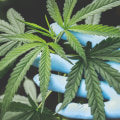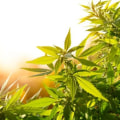For the first time in many decades, hemp has been removed from the Controlled Substances Act, thanks to a radical change in public opinion on cannabis. Hemp has been cultivated and used for thousands of years, and North Carolina's pilot program temporarily removed hemp from the state's list of controlled substances. However, when the pilot program expired, state law would no longer differentiate between hemp and illegal marijuana, making hemp illegal in North Carolina. To address this issue, senators introduced Senate Bill 762. The Farm Act outlines actions that are considered violations of federal hemp law (including activities such as growing without a license or producing cannabis with more than 0.3 percent THC).
Under section 10113 of the Farm Act, state agriculture departments must consult with the governor and the state's top law enforcement official to come up with a plan that must be submitted to the USDA Secretary. Several states, tribes, and local jurisdictions have enacted several laws that decriminalize or allow different types of cannabis compounds or products under state law. The Farm Act includes changes to existing farm law provisions to include hemp. Under the Federal Food, Drug and Cosmetic Act (FD&C), it is illegal to introduce into interstate commerce a food (including any food or animal feed) to which a substance has been added that is an active ingredient in an approved drug or a substance on which substantial clinical research has been initiated, and the existence of such research has been made public.
Each of those programs is illegal under federal law, with no exceptions, and the Farm Act does nothing to change that. Section 12619 of the Farm Act removes hemp-derived products from its List I category under the Controlled Substances Act, but it doesn't legalize CBD in general. The public hearing raised many issues, including the need for more and better data on the benefits and risks of CBD, concerns related to manufacturing, adulteration and illegally traded products, and even as simple as the need for consistent terminology in relation to cannabis products. Even CBD products produced by state legal, medical, or adult cannabis programs are illegal products under federal law, both within states and across state lines.
The law details possible punishments for such violations, the ways in which offenders can comply with regulations, and even what activities qualify as serious crimes under the law, such as repeat offenses. Any cannabis plant containing more than 0.3 percent THC would be considered marijuana or non-hemp marijuana under federal law and would therefore have no legal protection under this new legislation. For decades, federal law did not differentiate hemp from other cannabis plants, all of which were declared illegal in 1937 under the Marijuana Tax Act and formally declared illegal in 1970 under the Controlled Substances Act. The Farm Act removes hemp from this list of controlled substances.







